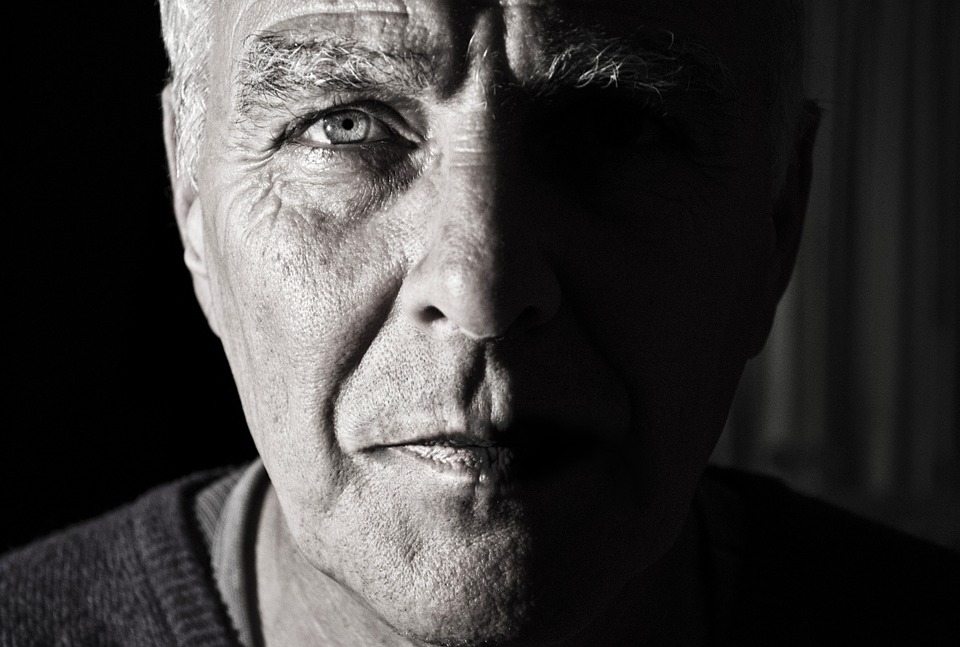How to Recognize a Sociopath
“This above all, to refuse to be a victim.”
–Margaret Atwood, Surfacing
So how do you recognize a sociopath? With great difficulty. If only they wore a scarlet “S” on their foreheads! Unfortunately, there’s no mark distinguishing these predators from normal people.
How do you avoid being a victim and keep yourself safe? Learn what makes sociopaths tick. They will make you pay a high price if you don’t.3
I’m writing this blog post in honor of my dear friend Vic, a firefighter who was murdered by Jaku, a sociopath coworker of Vic’s and mine. I want to share what I have learned through bitter experience in hopes of sparing you the pain and suffering a sociopath can bring. Please tell me your thoughts, and if you have other insights to add, leave me a comment. I promise to respond.
Sociopaths wait until they’ve gained your trust before they reveal the scariest parts of themselves. Most of us don’t find out until after we’ve been painfully victimized that sociopaths have no conscience and cannot feel.
Imagine if you couldn’t connect with people on a feeling level, couldn’t understand what feelings are like. If you couldn’t truly shed tears of sorrow or laugh joyously, how could you empathize with people who do? As Doctor Spock of Star Trek fame would say, for a sociopath emotions simply “do not compute.”
If you were a sociopath, you’d be bored in peaceful surroundings, and would pursue stimulation to relieve the boredom. To that end, you’d study normal people and learn how to speak their language, how to flatter them and turn on the charm, how to mimic and manipulate, so you could seduce them into trusting you. You’d act like normal people do, hiding the fact that you’re actually a chameleon with street smarts. You’d present yourself as either self-confident, extroverted, accomplished, and capable, or lacking in self-confidence, respectful, and shy—whichever persona would inspire trust until it’s time to turn the tables on the victim and ravish them in the most devastating way possible.
You’d stop at nothing to control every situation, because dominating is what stimulates you most. You’d see people as either victims or opportunities. You’d share neither the ethics nor guilt of normal people. A pathological liar, you’d spin a sticky web of lies until you entrapped your victim. You’d suck him or her dry of finances, assets, and hope, not even considering the damage you’ve inflicted on another human being. Then you’d repeat this cruel saga with the next new prey who stumbles into your life.
Sociopathy is a personality disorder. Have you known someone who left you feeling betrayed and afraid? If you were quickly able to peg this con artist as a sociopath, you’re exceptional. Sociopaths are nearly impossible to recognize until you’ve watched them long enough to put the pieces of their sociopathy puzzle together.1
How to Speed Up the Recognition Process
In the early eighties, I’d only been working in the Whaler Fire Department dispatch office for two weeks when some of the firemen teased me about Jaku claiming he’d watched me having sex with a visiting fireman on the alarm room floor. When I sputtered that I’d give that little liar a piece of my mind, a fireman warned me never to confront Jaku lest he get even with me in nasty ways. To protect myself, I pretended to be Jaku’s friend in hopes he wouldn’t hurt me.4
Most people aren’t as lucky as I was. Most of them don’t get warned. For them, it’s imperative to recognize the clues sociopaths have been known to reveal.
In particular, the “Predator Stare.” When a sociopath looks at you with an intense, unblinking gaze, you feel threatened. I certainly did. When Jaku made me his captive audience in the alarm room, I looked into his small, flat black eyes and shuddered because no light shone there. When I talked to him, he’d look every which way but directly at me. But when he start bragging about the crimes he’d committed, he’d stare at me intimidatingly. I paid attention to his every word lest he’d think I was “crossing” him by not giving him the attention he craved.

The Stare is such a powerful tool in a predatory sociopath’s tool box that his victim can be mesmerized by it. If someone stares coldly at you and it unnerves you, it should. That stare means you’re a target for him or her (25 percent of sociopaths are women). Just as in nature, when a predator stares at his next meal, his doomed prey is often frozen, unable to look away. The good news is that, if you’re unnerved, it means your intuition is alerting you, is yelling, DANGER!
Which brings me to the second sociopath survival tip. Always listen to what your intuition is telling you. As Martha Stout, PhD, wrote in her best seller, The Sociopath Next Door, “Intuition is soaring flight in comparison to the plodding of logic.”2 Your inner self knows. Listening to this wise voice can save your life.
When Jaku deliberately embarrassed Vic by showing me pictures of the two of them acting like drunken fools, I felt a pin prick of pain in my heart. What sort of friendship allows for this? I wondered. My “inner ding,” as metaphysical teacher Louise Hay called it, was telling me that something was very wrong. I think Vic’s inner voice was alerting him, too, when he considered taking his gun on the morning Jaku murdered him. But that was before he decided to try and talk some sense into Jaku’s hot head. He didn’t realize Jaku was a sociopath. Never confront such a person lest he erupt into violence.
When dealing with a sociopath, your number one goal is to stay safe. Talk to family and friends. If necessary, talk to police and/or lawyers. But don’t talk to the sociopath unless you’re forced to by circumstances. It’ll be easier to disengage from him if you avoid him, unless you can’t avoid him because he’s a coworker or member of your family. I’ll talk more about this in my next post titled, “How to Extricate Yourself Once You Figure Out a Sociopath’s Targeting You.”
Sources Consulted:
- https://wolcottcounseling.com/how-to-spot-and-handle-a-sociopath-2/
- The book The Sociopath Next Door by clinical psychologist and former Harvard faculty member Martha Stout, PhD
- The book The Gift of Fear by Gavin De Becker
- As told in my true crime memoir Angel Hero, Murder in Hawai’i, A True Story

Lizbeth Hartz is the author of the true crime, true love memoir Angel Hero, Murder in Hawaii, A True Story, which this blog post is partly based on. Buy it on Amazon or sign up to read the 1st chapter free.